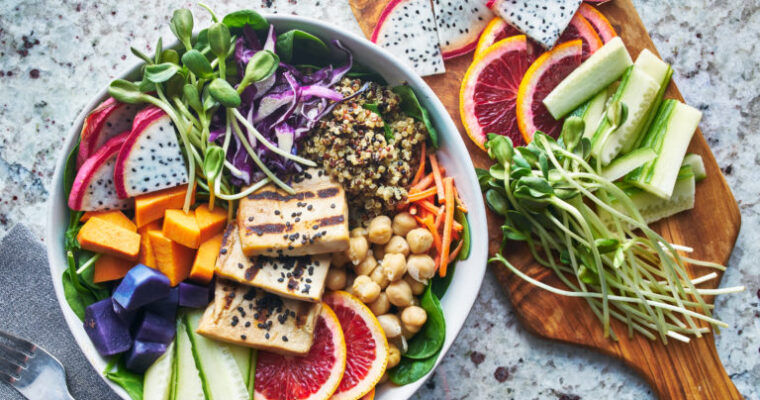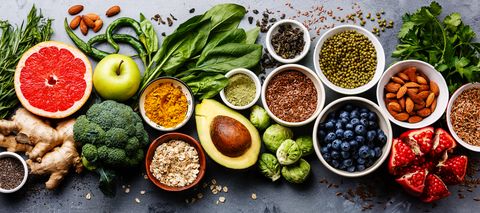Did you know that winter is the perfect time to detox? Going about it in the right way helps your body prepare for spring, lose any weight you’ve started to gain over the holidays, and feel fitter and healthier.
Winter also brings changes for your hormones, metabolism, and circulation —all of which can have a direct effect on toxins and wellbeing. A winter-specific detox helps removes some of the toxins that have built up from the summer and lets your body prepare better for the changing seasons. The end result? You can enjoy better energy and wellbeing, even if you only do a full detox for a super short period and follow the basic principles during the rest of the winter months.
What springs to mind when you think of a detox? You’ll likely conjure up images of juice cleanses, smoothie detoxes, and salads, right? These are great for detoxing during the summer, but they’re not super effective in winter. An extreme cleanse can also promote toxins and create imbalances in your body — definitely not the result you were looking for from a detox!
A detox that works well in winter is a whole heap different to one that serves you well in summer. During the winter, gravitate towards warming foods that are super easy for your body to digest.
Try these tips for resetting your diet and lifestyle with a winter detox:
What to Eat On a Winter Detox
When you’re choosing what to eat for your winter detox, go for foods that have natural detoxification properties.
Fiber-rich foods help get rid of toxins — they make it easier for them to move through your body and be eliminated through bowel movements.
Eat plenty of nutrient-dense winter foods as part of your detox reset. Root vegetables, nuts, seeds, legumes, whole grains, eggs, healthy fats, bone broth soups, grass-fed beef are great examples of this. They’ll provide a ton of nutrients for your body. Low-fat carbs such as sweet potatoes and oatmeal also offer winter comfort without.
A few more tips for winter detoxing includes:
Pack In the Bitter Greens
Bitter greens (and greens in general) are super important for winter detoxing too — not least because they’re great for giving your liver function a boost and helping your liver to remove toxins. They’re also highly anti-inflammatory, which is another major goal of detoxing.
Think kale, collards, turnip greens, arugula, and watercress. Team them with other nutritious greens such as broccoli, Brussels sprouts, spinach, and artichokes.
Bitter greens have a reasonably strong taste that can take some getting used to. Make them more palatable by blanching them or combining them with garlic or spices. This is super effective for taking the bitter edge off the taste.
Other Ways to Cleanse Your Body in Winter
Beets are a great addition to a winter detox. They’re hugely warming and have liver detoxing qualities too.
Cauliflower contains indole-3-carbinol, which is super important for liver cleansing. Eat it in place of potato or use it in soups to get the benefits.
Spice Up Your Life
Add in warming and immune-boosting herbs and spices are another winter detox tactic. Cinnamon, ginger, turmeric, and garlic all work great.
What Not to Eat On a Winter Detox
And what should you look to ditch for your winter detox? Some people remove all gluten, dairy, sugar, and meat from their diet, but you don’t need to go as far as this.
Skip the Sugar
Most of us eat a ton of sugary foods in the winter and see a noticeable decline in energy levels as a result.
A sugar detox is a super important part of a winter detox. Sugar is a toxin in itself, so it’s definitely one to avoid when you’re on a detox plan. It’s also linked to huge blood sugar spikes and crashes, and the energy loss that comes with this.
If you can’t do without your sugar hit, swap it for honey or maple syrup in the short term while you wean yourself off the white stuff.
Ditch Dairy If You’re Prone to Mucus
If winter tends to bring out excess mucus, try cutting back on or ditching dairy. It can encourage more mucus to be produced.
What Else Can You Do On a Winter Detox?
Diet isn’t the only way to detox this winter. Resetting other elements of your lifestyle and routine can ramp up your detox efforts:
- Exercise every day to help eliminate more toxins. Working up a sweat helps speed up the rate at which your body removes toxins.
- Brush your skin in circular motions 1-2 times per week to add another dimension to your detoxing. This stimulates your body’s lymphatic system, which makes it easier for toxins to be removed.
- Don’t forget to cleanse your mind too — meditation, yoga, and journaling are super effective for this.












